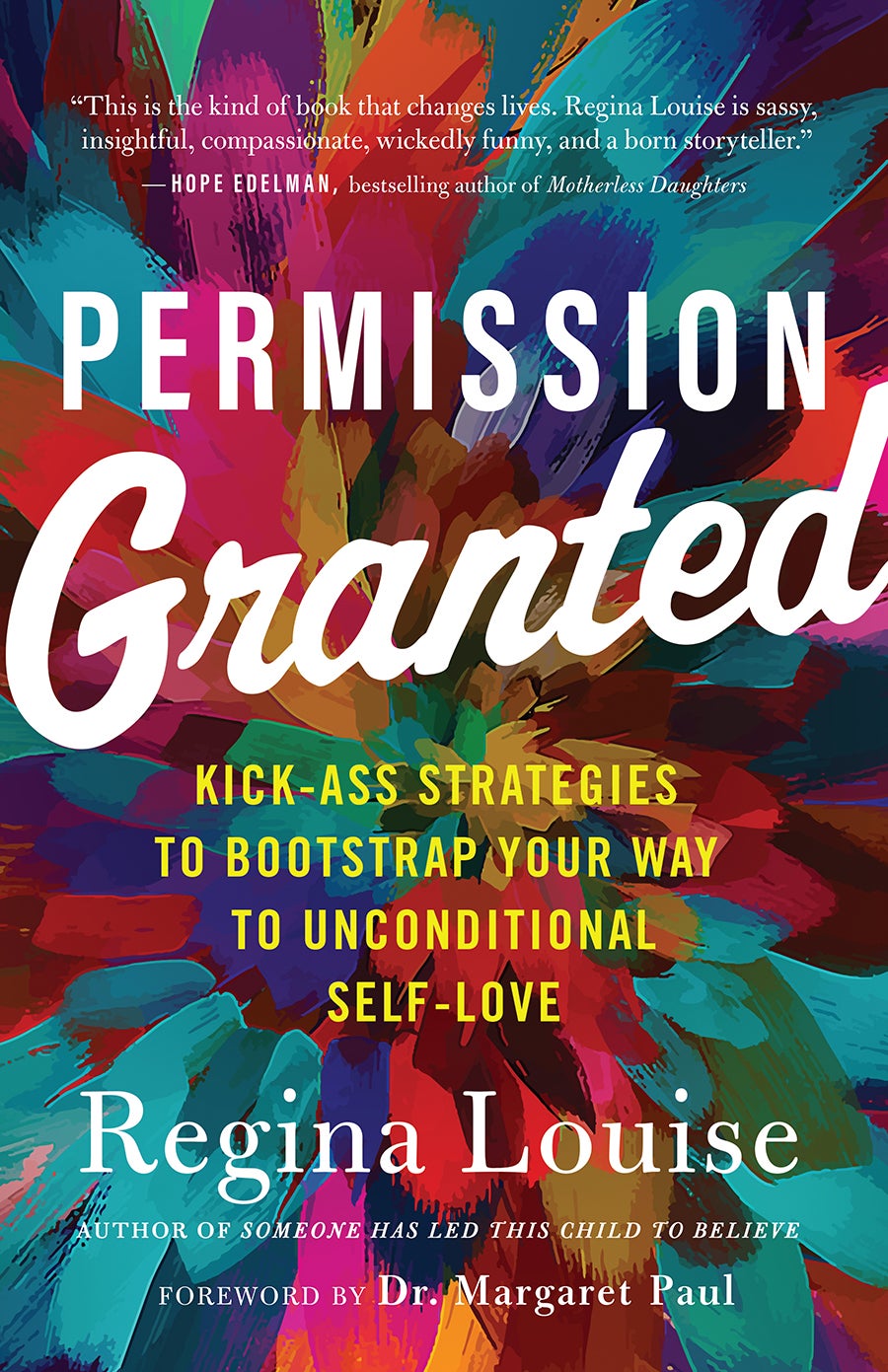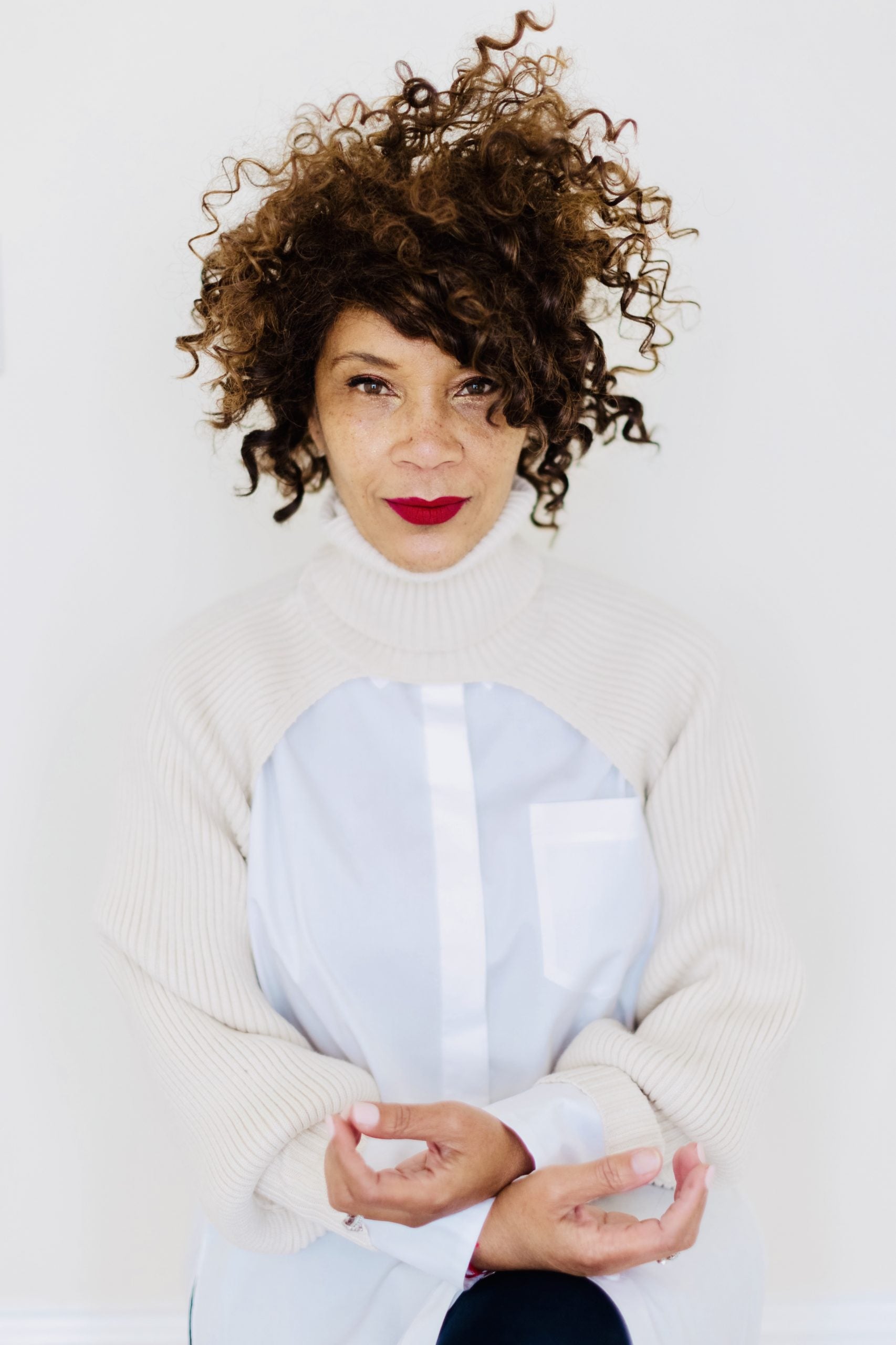 By Niema Jordan ·June 8, 2021June 8, 2021
By Niema Jordan ·June 8, 2021June 8, 2021
You may have heard Regina Louise’s story before. In her memoirs, Somebody’s Someone and Someone Has Led This Child to Believe: A Case Study on Love, Louise gives us insight into her traumatic childhood navigating the foster care system. In 2019, Lifetime released the film, I Am Somebody’s Child: The Regina Louise Story, offering a visual representation of the trials Louise so vividly detailed in her previous works.
For years, Louise has shared her experiences with the masses in hopes that it will help others. But with the release of her third book, Permission Granted: Kick-Ass Strategies to Bootstrap Your Way to Unconditional Love, Louise has gone from simply telling her story to giving readers a blueprint for loving themselves and living life on their own terms. While the author is also a life coach, it’s the fact that she is someone with lived experience who has flourished despite the odds, that makes Louise’s take on self-help hit differently.

We spoke with Louise about her new book and the importance of agency and listening to your emotions.
Why this book and why now?
REGINA LOUISE: When I was on Good Morning America, and I was sitting across from the goddess of Black Girl Magic herself, Robin Roberts, she had said to me, “If you could say anything to your younger self, what would you have said?” And of course, I launched into, “Don’t Stop Believin” from Journey. But when I returned to my hotel room, and I was looking out on Times Square, I’m like, wait, no, no, no. I wished she had asked me, “What did you do as a young girl? As a young Black, nobody’s child, female. What did you do to get yourself from there to here?”
It’s important for people to understand the agency, the sense of sovereignty that we have as people, particularly as Black identified people, and then women. This book is for every woman, but particularly every Black woman and girl who doesn’t want to have to turn to the status quo books. It’s the Black woman’s moment. It is the moment for us to look beyond what’s offered within the status quo. It’s the moment for us to get advice, suggestions, and get support from people who look like us who have braved the storms.
What is it about agency that really resonates for you?
LOUISE: I think that to have agency is to understand that a single person has the innate power and ability to take action, whatever that endeavor may be. Whether that is to take action to create something new, or to take action to intervene on something that is no longer serving them personally, communally, or in a global way. What’s the saying, be the change you want to see? To have agency, is to be the agency, right? It’s to be that thing that you want. I’m a firm believer in embodying the qualities that will serve myself as well as others in attaining the goal. For me, it’s a matter of embodying. So if I want hope, I don’t wait for someone to be my hope. I don’t wait for hope to come to me, instead, I understand what is being asked of me with hope. And then I’m more likely to be the hope. And that is how I employ agency.

Throughout the book, you have these sections called “Pause to Consider” where you list questions that work, in some ways, as journal prompts. Why are these moments of pause important?
LOUISE: When it comes to spiritual growth, we take that journey within. Oftentimes, we bump into things that we weren’t prepared for necessarily. Truth, experiences, feelings, emotions, patterns of shame that might arise as a result of going into that interior experience. It’s one thing to open the door to have a gateway into what we’re experiencing. And yet it’s another thing to take in what we experience as opposed to shutting the door, which, oftentimes, we’re encouraged to do in this life. A lot of times we’re taught to dismiss it, we’re taught to gaslight ourselves and say, “Oh, that didn’t really happen,” “I don’t really need that,” “I’m not that important,” or whatever the message that a person has. So what I find most important, is to allow that which might arise from reading this book, to metabolize. Then, we’re better able to establish boundaries based on what we need on our own terms. The better I understand how I move, the better understand how I feel, the better I understand how I break down emotions, and how they impact me, the better able I am to understand where I and the world begins.
For the Black women who read this book, what do you want them to take away?
LOUISE: The role of the book is to exist as a possibility for the readers to step into their own agency, step into their own permission, understand the value of their own consent. The value of their other instincts, of that gut, the value of their intuition. The value of their yes, the power of their no. The right, that they have the right, right? To live this one life, on their own terms. In the face of oppression, in the face of systemic erasure, in the face of inequality, in the face of unequal pay for Black women, in the face of a lack of equitable representation, in the face of that. To do your life to the fullest any damn way.
The post Regina Louise’s New Book Reminds Black Women We Have Permission To Take Control Of Our Lives appeared first on Essence.
0 Commentaires